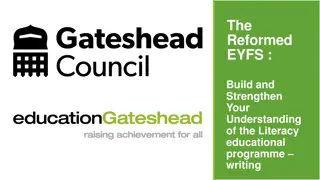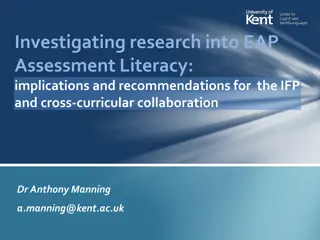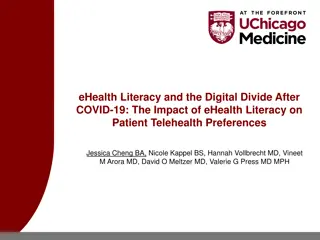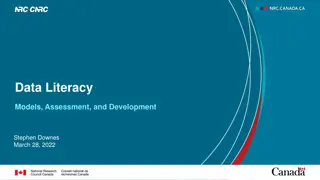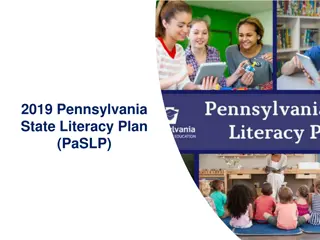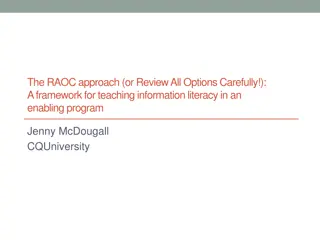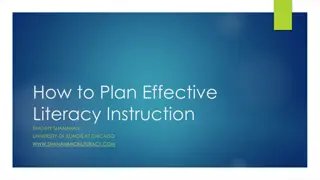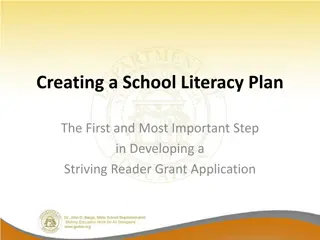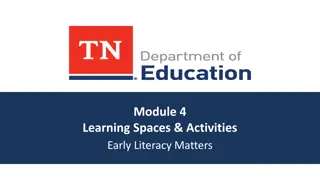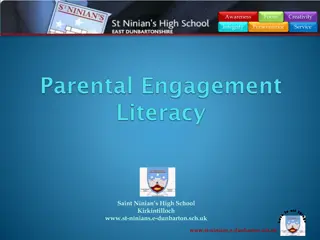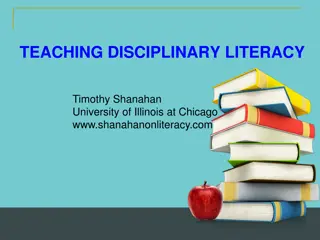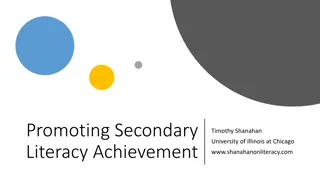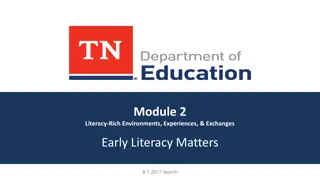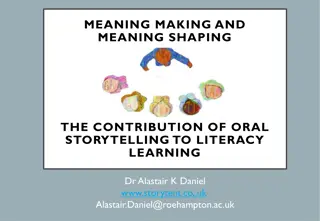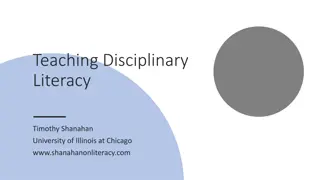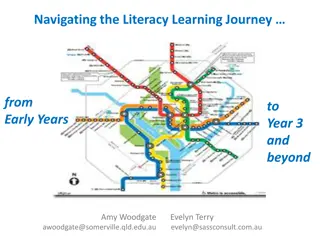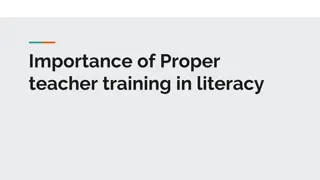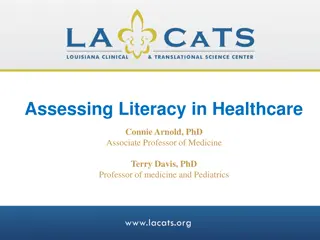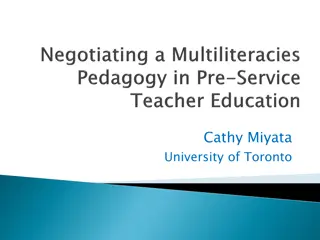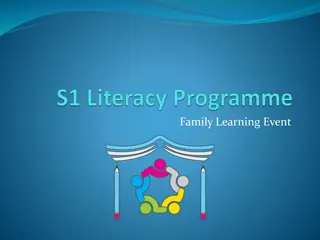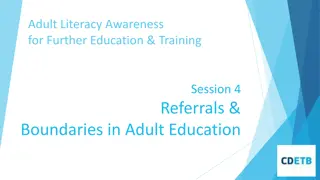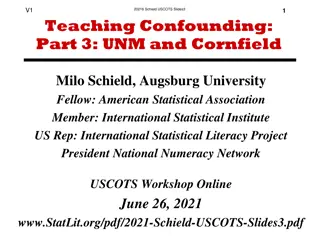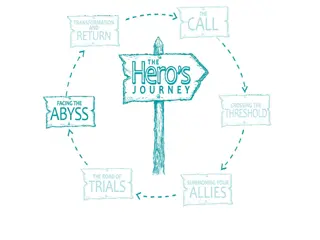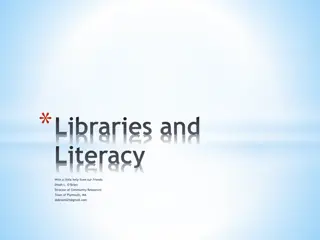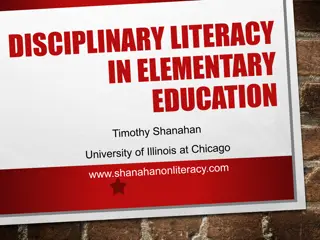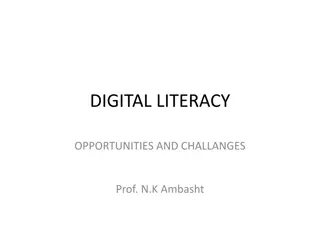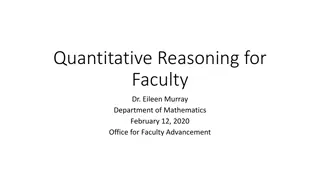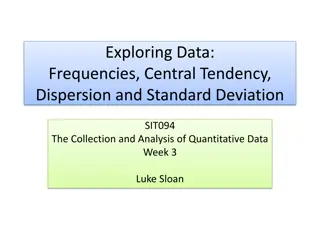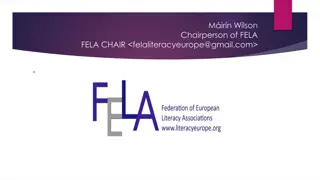Understanding the Reformed EYFS Literacy Programme
Deepen your knowledge of the reformed EYFS literacy programme with a focus on writing to support children's development. Explore changes to the statutory framework effective from September 2021 and the importance of literacy in early childhood education. Learn about transcription, comprehension, and
9 views • 81 slides
Literacy Coaches and Reading Specialists Program Overview
The Literacy Coaches and Reading Specialists Program, led by the California Department of Education, aims to enhance literacy outcomes for students. The program covers key aspects such as allocations, educator training, community building, and funding distribution to local educational agencies. The
2 views • 38 slides
Investigating EAP Assessment Literacy for IFP and Cross-Curricular Collaboration
This research project by Dr. Anthony Manning explores the implications and recommendations regarding EAP assessment literacy for the International Foundation Program (IFP) and cross-curricular collaboration. The study delves into defining assessment literacy, research objectives, relevant literature
3 views • 26 slides
Health Literacy in Rural Appalachia: Understanding the Impact and Needs
Health literacy is crucial in rural Appalachia where low literacy levels contribute to poor health outcomes. Understanding, supporting, and improving health literacy among the population can lead to better health decisions and reduced disparities in healthcare access and outcomes. This article explo
0 views • 16 slides
Understanding the Impact of eHealth Literacy on Telehealth Preferences Post-COVID-19
The research explores the relationship between eHealth literacy and patient telehealth preferences after the COVID-19 pandemic. It highlights disparities in telehealth use among different demographics, emphasizing the importance of digital literacy for accessing healthcare services. The study aims t
0 views • 19 slides
Understanding Data Literacy: Models, Assessment, and Competency Frameworks
Data literacy is the ability to collect, manage, evaluate, and apply data critically. Various frameworks and models exist, such as competency models, evaluation frameworks, and teaching frameworks developed by organizations like the National Research Council of Canada. Core skills and competencies u
1 views • 79 slides
Contrasting Qualitative and Quantitative Traits in Genetics
Genetic traits in organisms can be qualitative or quantitative, with qualitative traits controlled by single genes and showing distinct variations, while quantitative traits are influenced by multiple genes and environmental factors, resulting in continuous variations. Qualitative genetics focuses o
0 views • 13 slides
Understanding Quantitative Genetics Principles in Animal Breeding
Quantitative genetics focuses on the inheritance of characteristics based on degree rather than kind, compared to qualitative genetics. It involves polygenes controlling quantitative traits, which exhibit continuous variation and can be measured using metric units. Qualitative traits, on the other h
0 views • 22 slides
Pennsylvania State Literacy Plan (PaSLP) Overview
Pennsylvania State Literacy Plan (PaSLP) aims to improve literacy learning outcomes by providing districts and charter schools with guidance and tools to develop local literacy plans, facilitate data-driven decision-making, and create 21st-century classrooms. The plan underscores key guiding princip
2 views • 26 slides
Exploring Information Literacy in Educational Frameworks
Delve into the world of information literacy through the lens of educational frameworks, evaluation approaches, and critical literacy connections. Understand the significance of information literacy in today's digital age, its role in lifelong learning, and its impact on active citizenship. Discover
3 views • 27 slides
Maximizing Literacy Achievement: Effective Instruction Planning Strategies
Timothy Shanahan from the University of Illinois at Chicago discusses key considerations for planning effective literacy instruction, including scheduling, amount of instruction, content to be taught, and the timing of instruction. Shanahan emphasizes the importance of providing ample literacy instr
1 views • 19 slides
Literacy Coaches and Reading Specialists Program Overview
State Superintendent of Public Instruction Tony Thurmond provided opening remarks at the December 5, 2022 webinar on the Literacy Coaches and Reading Specialists Program. The session covered program details, allocations, allowed expenditures, and additional supports. Participants engaged in a poll o
0 views • 44 slides
Enhancing Religious and Cultural Literacy for Effective Engagement
Explore the importance of religious literacy and competency in engaging diverse communities during disasters. Learn how to differentiate between literacy and competency, understand the needs of partners, provide culturally appropriate services, and build sustainable relationships. Continuous learnin
0 views • 20 slides
Developing a Comprehensive School Literacy Plan
Creating a school literacy plan is crucial for student success. Each school should have its unique plan, while districts can also develop one to support their schools effectively. The goal is to provide gold-standard literacy instruction, preparing students for college and career readiness. A synthe
2 views • 21 slides
Enhancing Early Literacy Skills through Learning Spaces and Activities
Explore Module 4 focusing on creating book-and-language rich learning environments for children to develop essential literacy skills. Discover strategies for modeling and practicing early language and literacy skills, and learn how to design learning spaces to promote conceptual knowledge. Aligns wi
0 views • 17 slides
Promoting Literacy Skills and Responsibility at St. Ninian's High School
Explore the comprehensive literacy program at St. Ninian's High School in Kirkintilloch, focusing on awareness, creativity, and integrity. The school emphasizes the importance of literacy skills in all subjects, offering workshops, activities, and support to enhance reading, writing, speaking, and l
3 views • 13 slides
Understanding Disciplinary Literacy: Bridging Across Subject Areas
Disciplinary Literacy distinguishes itself from Content Area Literacy by focusing on specific ways each discipline uses text. It aims to apprentice students into various subject-specific ways of creating, disseminating, and evaluating knowledge. This concept challenges educators to teach subject-spe
0 views • 51 slides
Enhancing Literacy for Academic and Economic Success
Addressed by Timothy Shanahan of the University of Illinois at Chicago, this article underscores the critical importance of literacy in both academic achievement and economic success. The impact of literacy on overall academic performance as well as its influence on economic opportunities is emphasi
0 views • 57 slides
Module 2: Literacy-Rich Environments and Experiences for Early Literacy Development
In Module 2, you will explore the importance of creating literacy-rich environments for young children to enhance language development. Reflect on positive interactions, intentional planning, and ways to engage children in meaningful literacy activities. Discover how classroom arrangements and mater
0 views • 14 slides
Master's in Language & Literacy: Trademark Outcome and Alignment with ILA Standards
The Language & Literacy Master's specialization aims to equip students with essential skills to become literacy leaders through in-depth knowledge and practical application of literacy methods. The program emphasizes the importance of sustaining professional collaboration and improving diverse learn
0 views • 17 slides
Understanding the Role of Oral Storytelling in Literacy Learning
Oral storytelling plays a crucial role in literacy learning by allowing individuals to construct meaning through narratives. Dr. Alastair K. Daniel explores the significance of storytelling and its impact on interpreting events and ideas, emphasizing the blend of orality and literacy in education. K
0 views • 40 slides
The Significance of Visual Literacy in Today's World
Visual literacy is increasingly crucial in our modern society, with children learning and communicating through images. Understanding the hidden messages in visual content is vital for effective communication and learning. As technology evolves, the connection between visuals and knowledge becomes m
0 views • 21 slides
Understanding Content Area Literacy vs. Disciplinary Literacy
Content area literacy focuses on improving reading comprehension and study skills across disciplines, while disciplinary literacy delves into discipline-specific ways of using text to create and evaluate knowledge. Expert reader studies and the specialization of literacy further highlight the nuance
0 views • 56 slides
Navigating Literacy Learning Journey: Early Years to Year 3 & Beyond
Explore the essential skills required for literacy development from early years to year 3 and beyond, focusing on print-based and language-based core literacy skills, functional literacy conventions of writing, and the oral and written language scales. Address challenges in consolidating spelling an
0 views • 13 slides
Importance of Proper Teacher Training in Literacy: The Science Behind Reading
Effective literacy training for teachers is crucial for improving reading scores, especially among disadvantaged students. Research shows that with evidence-based strategies, 95% of children can learn to read. It is essential to teach reading explicitly and systematically, emphasizing skills like de
0 views • 13 slides
Understanding Patient Literacy in Healthcare
Assessing literacy in healthcare is crucial as it can be a barrier for patients in understanding medical instructions and information. Patient literacy is not always apparent, and formal assessments are needed to measure health literacy accurately. Using tests like REALM, TOFHLA, and NVS can help he
0 views • 39 slides
Exploring Changing Trends in Literacy Education
The field of Literacy/English education is undergoing rapid changes due to advancements in technology and shifts in communication practices. This study delves into the backgrounds, practices, and visions of literacy teacher educators to understand how literacy education is evolving in classroom cont
0 views • 15 slides
Importance of Literacy in Education and Society
Literacy is a crucial skill that empowers individuals to fully engage in society and learning, enabling them to communicate effectively and access a wide range of information. It is a fundamental element of Curriculum for Excellence, contributing to the development of essential skills for children a
0 views • 11 slides
Enhancing Adult Literacy Awareness and Education Programs
Explore the importance of referrals and boundaries in adult education sessions, focusing on understanding available supports, referral routes, practitioner and student roles, and skills for engaging with individuals with literacy needs. Discover how City of Dublin ETB Adult Education Service offers
0 views • 20 slides
Implementing Statistical Literacy at University of New Mexico: A Case Study
The case study delves into the challenges and processes involved in implementing a statistical literacy course, Math 1300, at the University of New Mexico (UNM). Dr. Milo Schield, supported by Dr. Eric Erhardt and Dean Peceny, undertook the task of creating a new course to complement the existing Ma
0 views • 26 slides
Developing Literacy Skills for Leadership Excellence
Enhance your speaking, reading, and writing abilities through a comprehensive program designed to transform your literacy skills. Join Teaching Leaders Residential in August 2015 led by Geoff Barton to uncover the secrets of literacy and improve your communication techniques. Explore essential topic
0 views • 89 slides
Financial Literacy and Education Commission: Coordinating Federal Efforts
Financial capability empowers individuals to manage financial resources effectively, make informed choices, avoid pitfalls, and improve their financial well-being. The Financial Literacy and Education Commission (FLEC) works to improve the financial literacy of individuals in the United States throu
0 views • 16 slides
Empowering Communities Through Libraries and Literacy Advocacy
Education is fundamental for societal progress, and libraries play a crucial role in promoting literacy and knowledge dissemination. They serve as historical archives, educational hubs, and inclusive spaces for adult learners. The integration of literacy into library services enhances community outr
0 views • 6 slides
Exploring Disciplinary Literacy in Education
Educators have long emphasized the importance of content area reading to improve students' comprehension and study skills across various subjects. However, disciplinary literacy goes beyond basic reading skills, focusing on how different disciplines create, communicate, and evaluate knowledge throug
0 views • 42 slides
Exploring Digital Literacy: Opportunities and Challenges in Education
Explore the realm of digital literacy with a focus on adult education, functionality in changing times, and the impact on citizenship and economic development. Discover the intrinsic connection between literacy, language, and script, and how digital platforms are expanding knowledge sources. Delve i
0 views • 9 slides
Understanding Financial Literacy and Its Importance
Financial literacy is crucial in today's society as it involves knowledge of financial concepts, skills to make effective decisions, and confidence in financial matters. This module explores the definition of financial literacy, its importance for young people, and the impact of financial literacy a
0 views • 20 slides
Understanding Literacy Beyond Traditional Approaches
Explore the expanded concept of literacy beyond traditional school methods like reading and writing, delving into emotional, social, and physical aspects. Discover how everyday experiences contribute to literacy development and its connection to language, culture, and background. Follow the story of
0 views • 21 slides
Empowering Through Quantitative Literacy: A Roadmap to Mathematical Empowerment
In a modern society filled with data and statistics, quantitative literacy is essential for individuals to think critically, question authority, and make informed decisions. The ability to understand and engage with mathematical concepts is crucial for addressing complex issues and thriving in today
0 views • 15 slides
Understanding Quantitative Data Analysis in Research
Dive into the world of quantitative data analysis with a focus on frequencies, central tendency, dispersion, and standard deviation. Explore the collection and analysis of numerical data, levels of measurement, and methods for quantifying social concepts. Learn about the importance of capturing data
0 views • 25 slides
Promoting Literacy Excellence in Europe: FELA's Commitment and Initiatives
FELA, chaired by Mirn Wilson, brings together 30 literacy organizations across Europe to enhance professional skills, share best practices, and improve literacy at all levels. Through diverse experiences and collaborations, FELA members are dedicated to promoting literacy through research, policy de
0 views • 8 slides
